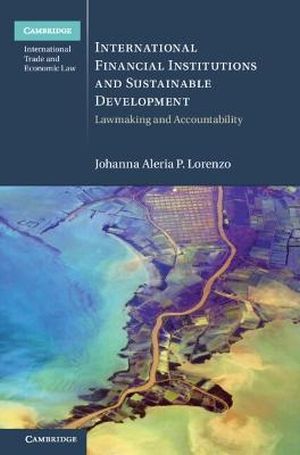
Balancing theoretical and practice-oriented elements, this book introduces researchers, teachers, and students in international sustainable development law to the IFIs' safeguard policies. It also scrutinizes the case law of independent accountability mechanisms that interpret those policies and afford recourse to individuals and communities adversely affected by development projects. The book's focus on the procedural and substantive features of IFIs' safeguard systems contributes to a more concrete understanding of these organizations' participation in the international lawmaking process on sustainable development. It puts IFIs in the spotlight and provides an international legal critique of their activities to match their notoriety in popular consciousness and to enhance their accountability to those they harm. By approaching international (economic) law and sustainable development through the lens of economic, environmental, and social issues arising in development projects primarily in the Global South, the book presents a needed counterbalance to existing literature on the topic.